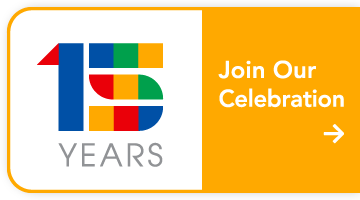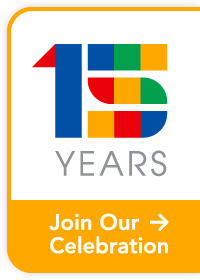The Renaissance Man Proving the Power of Career Change
In Business Korea, our Head of College, Guðmundur Hegner Jónsson, shares his inspiring career journey from a traveling archaeologist to an educator in Seoul. He emphasizes the value of career adaptability, embracing uncertainty, and exploring personal passions for a satisfying and diverse career path.
Whatever you imagine when you think of a school headmaster, Guðmundur Hegner Jónsson is likely to surprise you. Originally from Iceland and standing close to two meters in height, he has dug up the world’s past as an archaeologist, recorded in the same studio as The Beatles, and speaks four languages thanks to an upbringing and diverse career that has taken him everywhere from Italy, the U.K., Norway, and Serbia to China, the United Arab Emirates, and now Korea. Jónsson’s varied experience positions him to advise anyone considering a career change – or perhaps a move to Korea. Since 2020, he has been the Head of College at Dulwich College Seoul. The following is Business Korea’s recent interview with him.
Question: You have quite a diverse background. How did you go from globe-trotting archaeologist to Seoul-based educator?
Answer: I grew up traveling the world and have continued my family’s nomadic tradition as an adult. I grew up in Iceland until the age of 5 and have lived and worked in so many countries since then. We lived in Saudi Arabia in the 1970s and 1980s - an eye-opening experience to say the least. I am the quintessential Third Culture Kid!
I’ve now been an educator for nearly 20 years. I first developed a love for archaeology after returning to Iceland as a teenager, with its volcanic landscapes and Viking Age digs providing such an inspirational backdrop. I went on to study Archaeological Science in the UK before directing research excavations for University College London (UCL) and the University of Cambridge as well as the National Museum of Iceland. It was enthralling to travel the world from Europe to the Middle East through archaeology. I'm proud to say the highest point of my archaeology career was meeting my wife, Katarina, who is from Serbia. We were both working as archaeologists at the site of Çatalhöyük in Turkey, one of the oldest settlements in the world going back almost 10,000 years. As we started a family, I shifted in the direction of education. This decision made sense to be together as a family, and I was also very drawn to the academic side. I wanted to encourage critical thinking among younger people.
After getting an MA in Education in the UK, I taught at international schools in Serbia, Italy, China, and the United Arab Emirates. Before my current role at Dulwich College Seoul, I was the Rektor of the United World College Red Cross Nordic on the west coast of Norway. It’s been a tremendously rewarding career in education and I remain as passionate about it as ever.
Q: Before we come to your Korea experience, how did you come to record in the same studio as The Beatles?
A: It actually goes back to when I was working as an archaeologist. I had joined the Brighton Festival Chorus in England and we often had the opportunity to do recordings for film soundtracks and albums. We were invited to record at the famed Studio Two at Abbey Road Studios for two whole days! Being a huge Beatles fan and growing up with their music, it was an amazing experience to sing and record where they had created many of their legendary albums. I did backup vocals for an album by Eric Woolfson, who had been one half of the 1980s band ‘The Alan Parsons Project’.
I have always loved music and singing. I studied classical singing at the Royal Academy of Music in London, where I would meet a lot of interesting people – Elton John used to come there a lot, for instance. I sang backup vocals for rock groups, including the German hard rock band Rammstein.
Q: As an archaeologist, you also had a singing career. Career change has become a major global theme during the pandemic. Why do you think that is?
A: Firstly, I think a lot of people would be surprised at how much they can do. I would strongly recommend exploring personal passions as much as possible at any age. Not only does that open up career pathways, but it also creates a much more rounded background and skill set.
The pandemic has forced us to embrace uncertainty while serving as a reset in many industries. Many people have reflected on what they want to do with their lives - seize the day, so to speak. There is so much to explore in this world, so why not learn as much as you can? I am sure these questions have contributed to an atmosphere of career change.
Career adaptability will be very important moving forward, especially as factors beyond the pandemic contribute to global uncertainty, including the inevitable upheavals of tech advancement. We need to adapt to labor market changes, encouraging curiosity within ourselves, along with critical thinking and being ready to face change. I am still working on these at the age of 52, and I hope I’m proof that career change and re-skilling are possible.
Q: What attracted you to Korea?
A: When I saw the job advertised, I knew that Dulwich College Seoul had a great reputation - both with its own international community and the connection with the founding school Dulwich College, which was established in the 1600s. I visited the school and was very impressed by the caliber of its staff, stellar facilities, as well as its International Baccalaureate program, which I am personally very passionate about because I have seen how well it prepares students for university and beyond.
Location is very important too and I loved the fact that the Dulwich College Seoul campus is in the heart of Seoul just south of the Han River. During my initial five-day stay, I could easily move around the city and get a taste of life in Seoul. There was an overwhelming sense of positive energy, even though I had arrived in the thick of the COVID-19 pandemic. I felt there was so much to discover in Korea - I am still finding out more reasons to love the country after nearly three years.
Q: I heard that you cycled the length of Korea, camping along the way and even hopping over to Jeju Island?
A: That was at the end of a very challenging first year for me in Korea. My wife and kids had traveled to Serbia and I thought, what better way to refresh myself and see more of Korea than to get on my bike? I purposefully did as little planning as possible. Heading out from Seoul, I knew I could follow my nose along the four rivers cycle route down to Busan, just deciding to find a place to stay or pitch my tent along the way.
During that trip, I found Korea to be a beautiful land of contrasts, with ultra-modern architecture alongside sweeping mountains and beautiful temples. I was also extremely touched by the kindness of strangers. One night a couple of days before I got to Busan, in a very remote area, I saw a little place with lights on and could see that people were eating inside. I approached the door, not knowing whether it was a restaurant. A woman greeted me and invited me in to sit alongside a group of people she was with. The woman served me a delicious meal – and adamantly refused to take any payment despite my insistence.
I later took an overnight ferry to Jeju Island on a spur decision. What a beautiful place! At one point, however, my back wheel died. I started walking with my bike, and a man stopped with his pickup truck and took me back to his workshop. He tried without success to fix my bike, but his family fed me before he drove me 30 minutes to a bike repair shop. There was just so much kindness.
Q: What was it like adjusting to a new job in a new country during the pandemic?
A: The period between 2020 and 2021 was probably the most challenging academic year of my career. My focus was just to keep the school going, constantly finding ways to overcome obstacles that seemed to appear on a daily basis. Of course, it was a team effort. The pandemic brought our school community together as we worked hard to create an environment that maximized the safety and learning opportunities for our students. The teachers, the administrative staff, the parents and the students – we definitely couldn’t have done it without everyone’s trust in us and unwavering support.
The pandemic also made it harder to explore daily life in Korea as much as I would have liked, which is why it was so valuable to do that bike trip down the Korean Peninsula. I am delighted to say that I have a much better grasp of the country and living in Seoul now. With the lifting of many restrictions at school, we have been able to appreciate so many aspects of in-person education. At the same time, the pandemic has also prepared me and our community to face future challenges. I have seen the way our students have approached critical thinking around climate change, for example – and I am sure their pandemic experience has placed them in an even stronger position to grow as global citizens who are truly engaged in issues around them and the wider world.
Q: What advice do you have for those who have just moved to Korea or are considering doing so?
A: I am confident that there are growing opportunities for success here – and let me start by wishing you all the best.
I would also say explore life in Korea – it’s a lot easier now than it was in 2020 and I am confident you will quickly fall in love with the country. That will make every aspect of living and working in Korea more rewarding. You will find that the more open your attitude, the more local people see that and reciprocate with the most heartening and welcoming attitude.
As a father of two children, I would like to address any concerns that parents might have for their children’s education in Korea. This country has some wonderful international education options. For instance, the International Baccalaureate Diploma Program, in particular, is a globally recognized program with higher acceptance rates to the top universities in the United States and in the UK. What this tells me is that universities value the program’s holistic approach as much as my colleagues and I at Dulwich College Seoul do. It goes without saying that I would be delighted to welcome any parents seeking education for their children to visit us and see our wonderful Dulwich College Seoul campus for themselves. The facilities are brilliant – science laboratories, libraries, an all-weather sports field, a gymnasium, performance areas, creative workshop areas, a 25-meter indoor pool, and much more all within a campus in a very convenient Seoul location.






